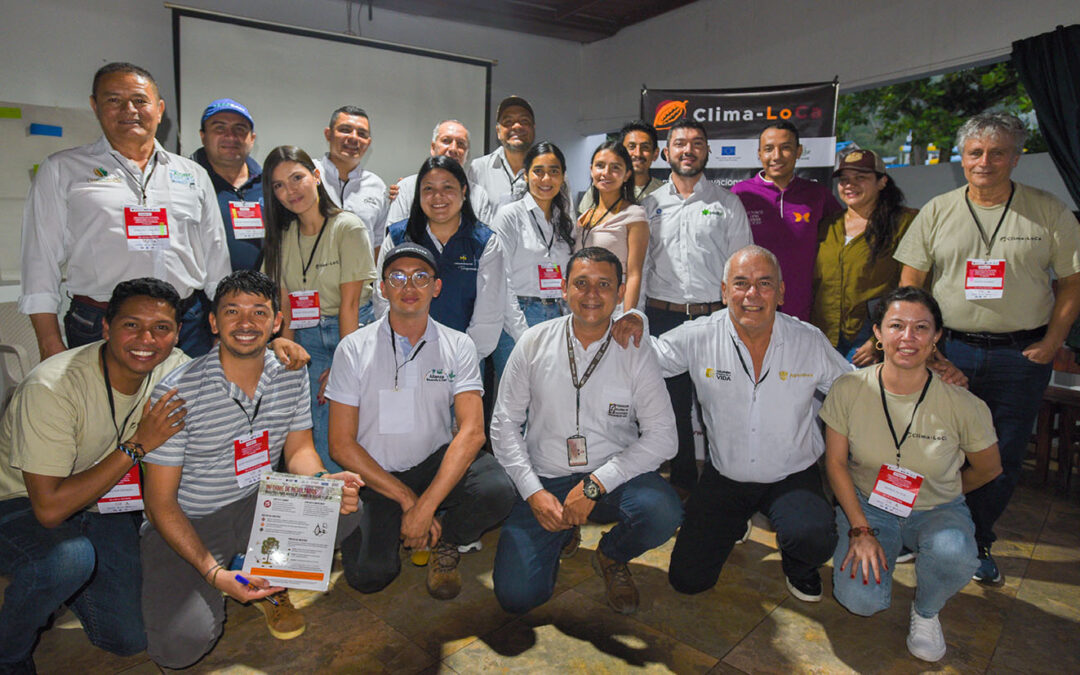On April 29 and 30, 2025, the municipality of San Pablo de Borbur hosted the first event of the closing tour of the Clima-LoCa project. This meeting brought together producers, researchers, public institutions, and chocolate companies to share the lessons learned, achievements, and contributions that the project has left in western Boyacá.
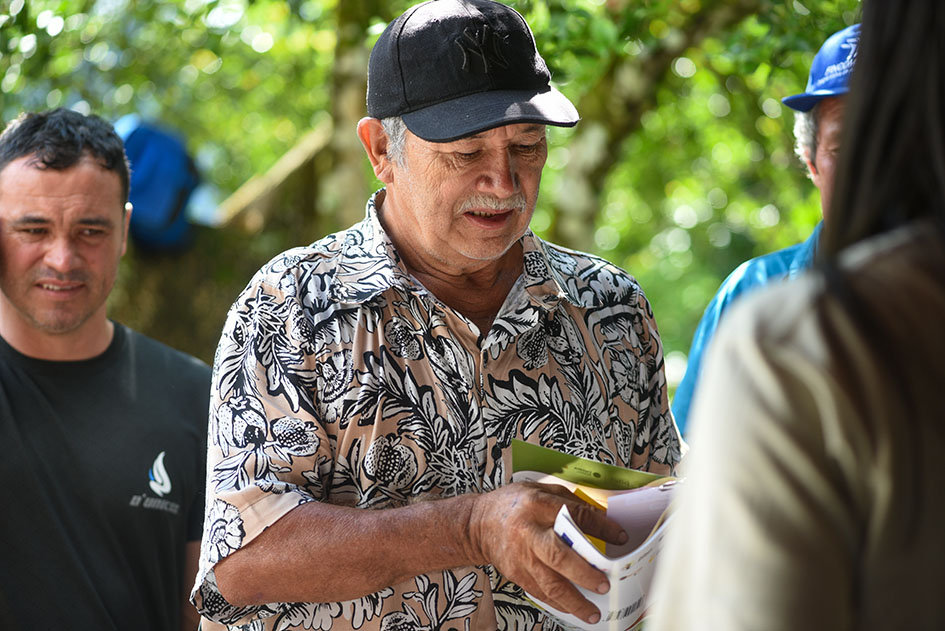
Photo: Elizabeth Ramirez / Alliance Bioversity & CIAT.
Clima-LoCa is a regional initiative that seeks to promote innovations in cocoa production, focused on reducing cadmium concentration in the bean and improving climate resilience and inclusion within the cocoa chain. Since 2019, the project has benefited more than 50,000 producers in Colombia, Ecuador, and Peru, promoting practical, sustainable solutions built on local knowledge.
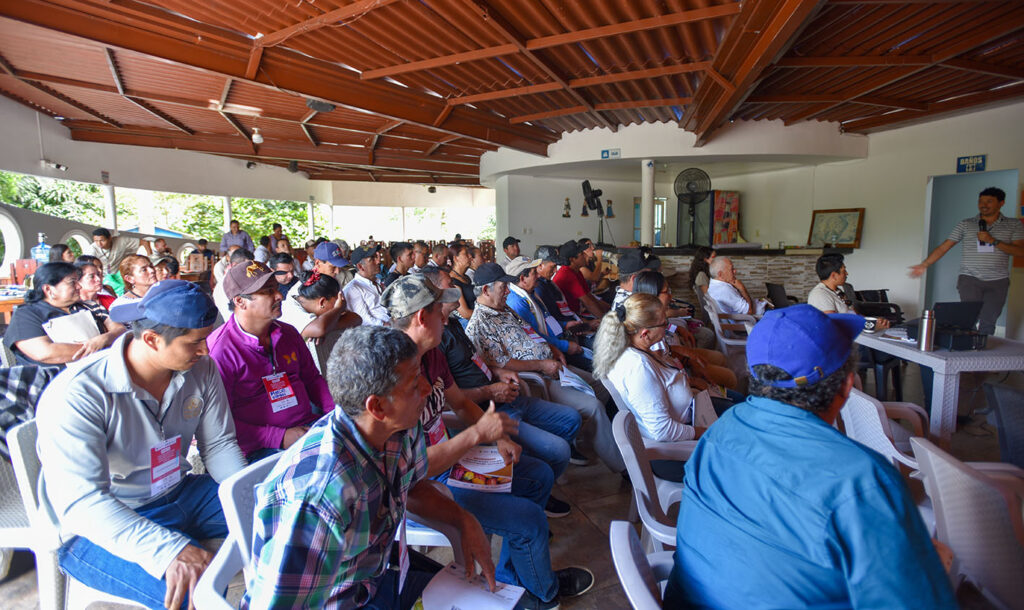
Photo: Elizabeth Ramirez / Alliance Bioversity & CIAT.
During the event, producers and representatives of the cocoa chain shared the actions they have been developing in their territories and the projections with which they hope to continue the work promoted by the project. On the other hand, researchers from the Bioversity & CIAT Alliance presented the technical material generated within the framework of the project, now available as a permanent resource for those who continue to work to strengthen cocoa in the region.
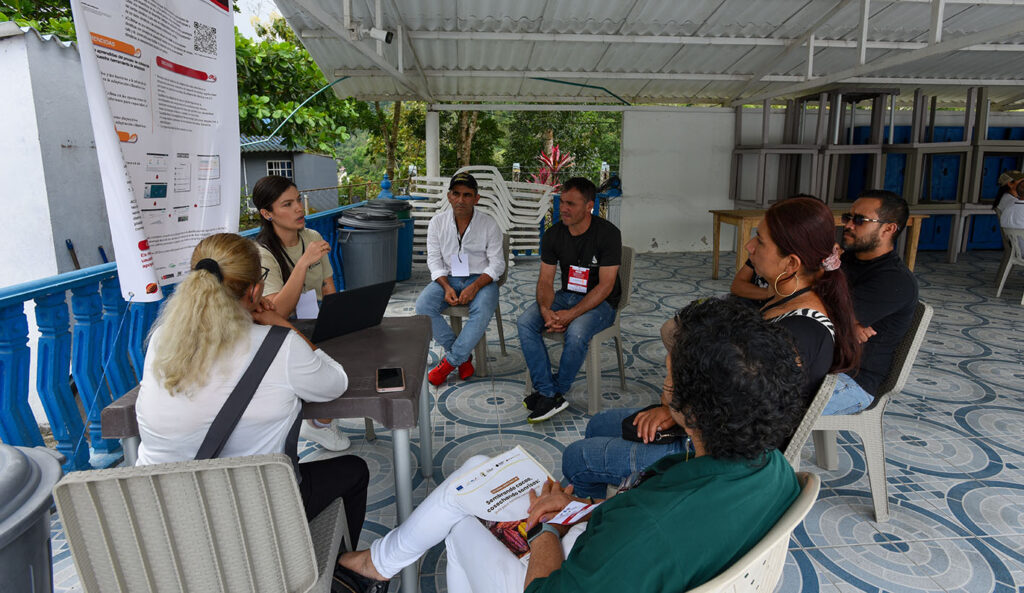
Photo: Elizabeth Ramirez / Alliance Bioversity & CIAT.
“The experience with Clima-LoCa has been very enriching. Now I am enthusiastic about pruning. I learned new grafting techniques, how to interpret a soil analysis, and I teach my husband what I learn in the training sessions”
says Liddy Menjura, a cocoa producer and beneficiary of the project.
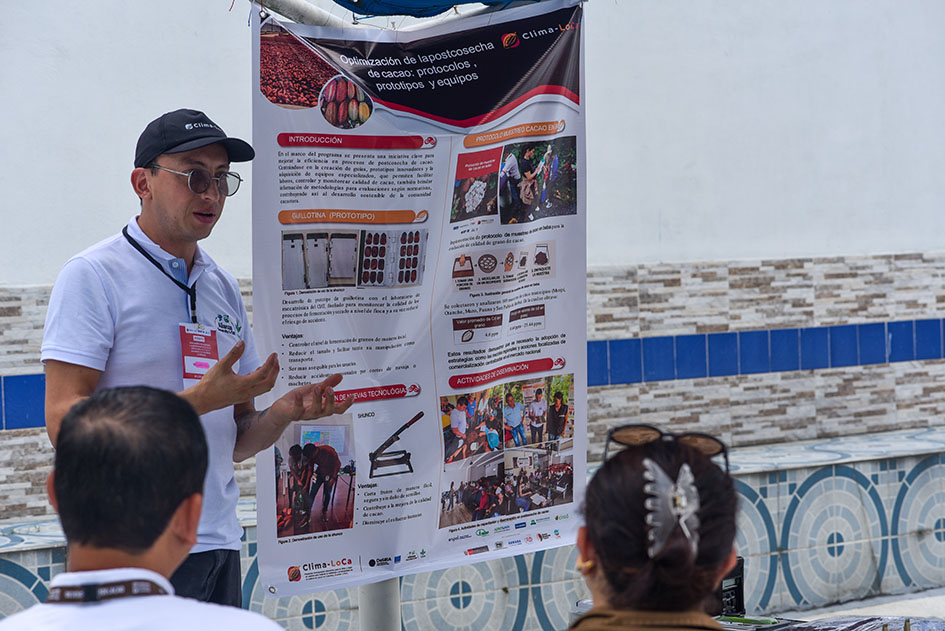
Photo: Elizabeth Ramirez / Alliance Bioversity & CIAT.
“Together with our partners, we have managed to reach those places where farmers face daily challenges in their crops. Being able to accompany them shows us that, as researchers, we are having a real impact on improving their living conditions,”
says William Melo, senior researcher at the Alliance Bioversity & CIAT.
During the event, the results of field trials conducted in the region were presented, aimed at reducing cadmium absorption by cocoa plants, a key technical challenge for improving access to international markets. Thematic stations were also set up, where producers and researchers discussed key issues such as climate change, bean quality, production costs, and household economics, highlighting the importance of integrating a gender perspective into rural development strategies.
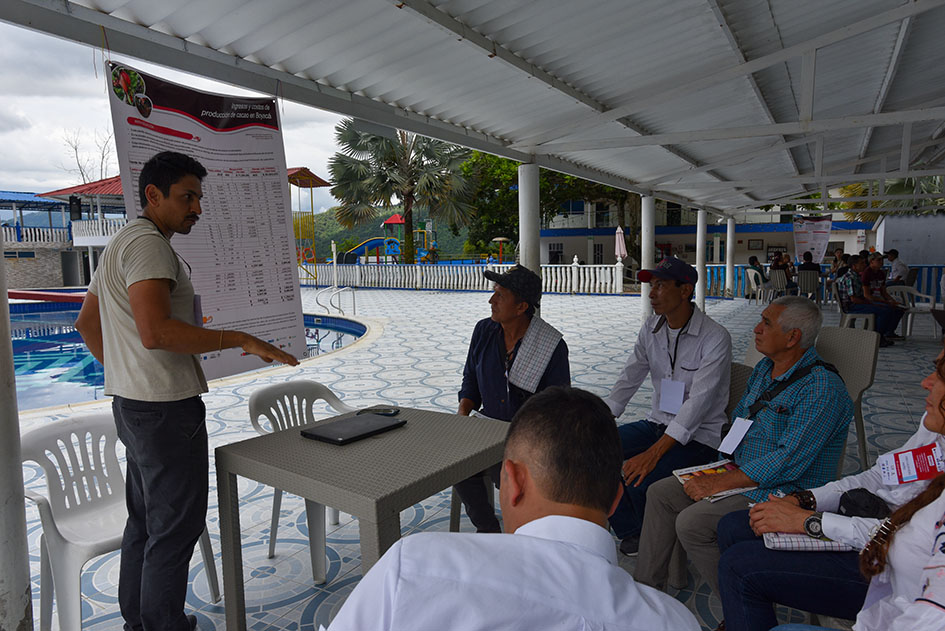
Photo: Elizabeth Ramirez / Alliance Bioversity & CIAT.
The second day of the agenda was devoted to a visit to the Origen Boyacá biofactory, where attendees were able to see how science is transformed into concrete solutions: bio-inputs such as bocashi and bioles are produced there, developed within the framework of the project thanks to the coordinated work between local communities, technicians, and researchers. This installed capacity is one of the tangible legacies that the Alliance and its partners leave in the territory.
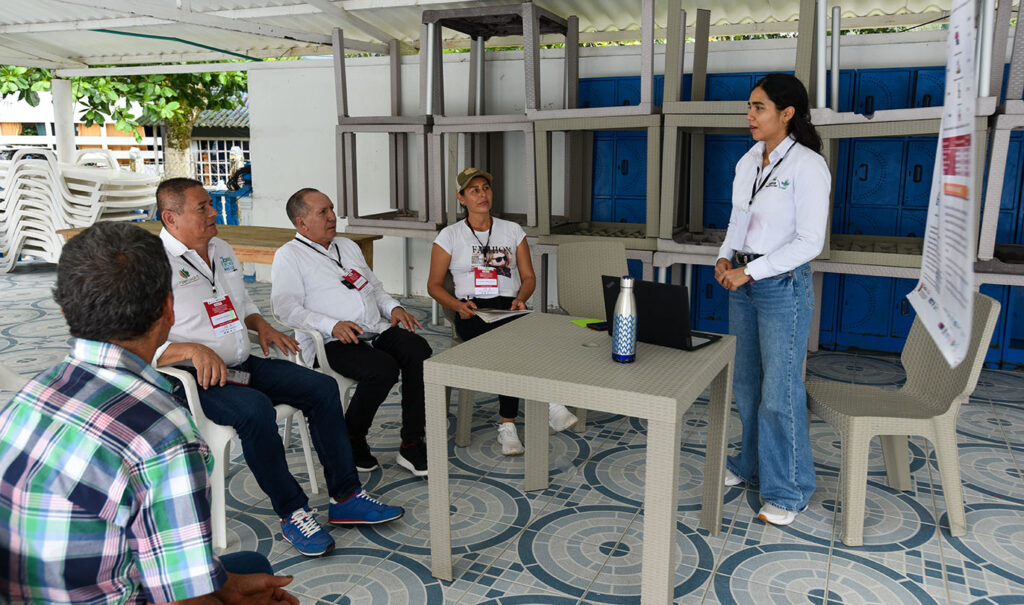
Photo: Elizabeth Ramirez / Alliance Bioversity & CIAT.
Watch the video summary of the activity carried out in Boyacá by clicking here.
Many thanks to the Alliance Bioversity & CIAT for their help and support in promoting and recording the event.

